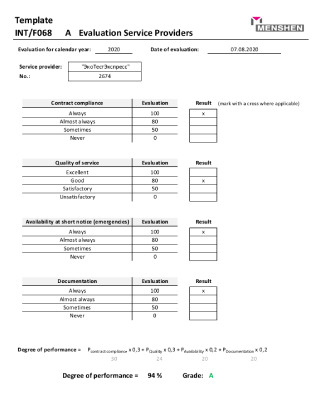It is most often aligned or attached with a licensed treatment provider, and overseen by an appropriately credentialed and qualified management team. Through NARR, recovery residences are now categorized under different levels based on the type as well as the duration and intensity of support that they offer. The provided residential services span from peer-based community models to medical and counseling services in recovery residences offering higher levels of support.
Oxford House — Valinor
They are organized to offer a balance of personal freedom and accountability, emphasizing maintaining sobriety and promoting personal development. Residents are expected to follow a daily routine that includes work, chores, therapy sessions, support groups, and other recovery-related activities. This consistency helps individuals avoid the temptations and chaos of unstructured living, which lead to relapse. Research by Polcin DL, Korcha R, Bond J, Galloway G., et al. 2010, titled “What did we learn from our study on sober living houses and where do we go from here? ” indicates that individuals in structured environments, such as halfway houses, have a significantly lower relapse rate compared to those who skip this step in recovery.
The long-term benefits of transitional housing include sustained sobriety, reduced risk of relapse, improved life skills, and stronger social support networks. These environments help individuals rebuild their lives, gain independence, and transition smoothly back into society with a stronger foundation New Life House Review for continued recovery. Oxford Houses are self-sustaining, democratically operated sober living homes for individuals recovering from drug and alcohol addiction. These residences are characterized by their self-run structure, ensuring a drug-free environment where each resident contributes to the management and upkeep of the home.
Our Programs
- We partner with state agencies and recovery community organizations to advocate for the adoption of our high-quality housing standards at both state and national levels.
- The supportive environment and guidance from staff members can help individuals navigate the complexities of rebuilding relationships while in recovery.
- However, the exact duration will be determined after an initial assessment.
- These interactions can be instrumental in building a strong support network and combating feelings of isolation often experienced during early recovery.
Join us in transforming lives and strengthening communities through recovery. Your support directly contributes to the expansion of safe, quality recovery residences nationwide, making a lasting impact on individuals and families on their journey to healing. If possible, visit both halfway houses and recovery houses to get a feel for the environment.
Levels (Types) of Recovery Residences
Recovery houses have constant turnover, with people coming and leaving frequently. Some people may stay for a few days and relapse, others may hate it and move out, some may stay for months or years. But a recovery house will have many BBL patients so that you won’t be alone.
How do transitional housing facilities ensure safety and compliance with house rules?
- Having a room to yourself is not unheard of, but rare in many recovery houses.
- An Oxford House member can stay as long as they like, provided they stay drug and alcohol free, are not disruptive, and pay their share of house expenses.
- Employment helps residents develop life skills, rebuild confidence, and engage in productive activities, all of which are necessary components of successful reintegration into society.
- Sober living homes are residences where individuals live together in a sober environment after completing inpatient treatment or if they need a supportive living situation for their recovery.
In this guide, you will learn about recovery houses, their purpose, their standard rules, and potential issues. I’m going to write this article as if you are someone looking into recovery houses for the first time. If you’re the loved one of a recovering addict, you may still find this information useful. New Paradigm Recovery is a high-quality private addiction treatment and mental healthcare provider for Northern Virginia and Washington, DC, adults 18 and older. New Paradigm Recovery operates an Intensive Outpatient Program for addiction, mental health, and dual-diagnosis conditions and connects clients to outpatient mental healthcare. Yes, at Genesis House, we believe in the importance of family involvement in the recovery process.
This can happen after they have completed a jail or prison sentence related to substance use or other crimes. The halfway house serves as a “bridge” to help them reintegrate into society while continuing their rehabilitation. Some homes require signing out when leaving the home and signing in when returning.
We don’t set a limit on residency, instead, you can stay for as long as six months, a year, or until you graduate from the program if it helps your long-term success. When choosing a route of recovery, finding the one that works best for you will improve the longevity of your sobriety. Remember, where a person lives after inpatient treatment can have a huge impact on their success in recovery. As a result, it is very important that you take some time to weigh the pros and cons of each living environment and make the best choice for you.
How Do Halfway Houses Compare to Other Forms of Transitional Housing?
Residents of halfway houses often report feeling happier and more mentally stable compared to when they were actively using drugs or alcohol. The structure and support provided by these homes contribute to improved mental well-being by offering a sense of purpose, routine, and a https://sober-house.org/new-life-house-review/ supportive community. Halfway houses offer a level of structure and accountability that helps residents maintain sobriety and make positive life changes.
If you’re lucky and get along with your roommates, living in a recovery house isn’t that unpleasant of an experience. A recovery house will be the best option for you if you are traveling to a different city for surgery or if you don’t have someone to help you during the recovery period. You can stay at a recovery house in your surgery city and not put your body through the stress of traveling.
Whether you need the structure and support of a halfway house or the flexibility and independence of a recovery house, there is an option that can meet your specific needs. Halfway houses have been around for decades, originally serving as a safe haven for parolees. Over time, their role expanded to include individuals recovering from substance abuse, offering a supportive environment to rebuild life skills.
The concept of recovery houses emerged more recently, influenced by the growing recognition of the importance of peer support in addiction recovery. These homes aim to create a family-like atmosphere where everyone supports each other’s sobriety. Halfway houses typically offer a higher level of supervision compared to other transitional living options.



















